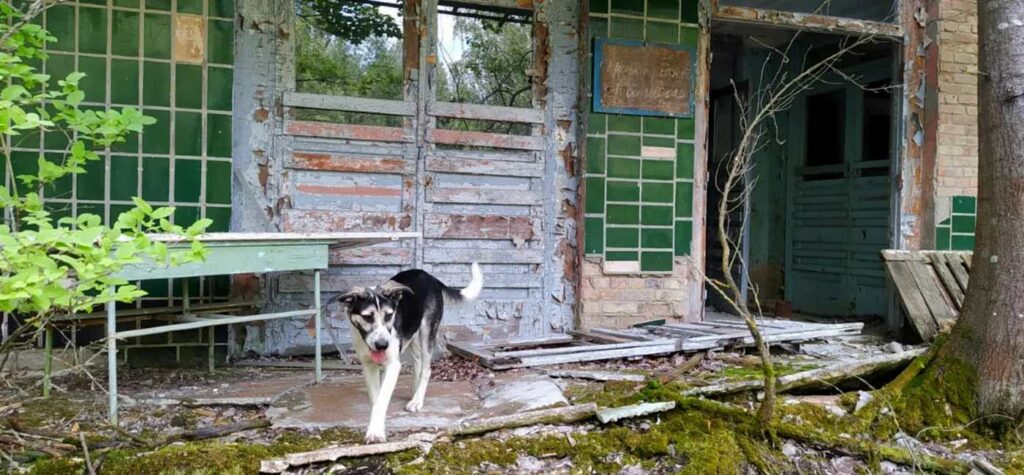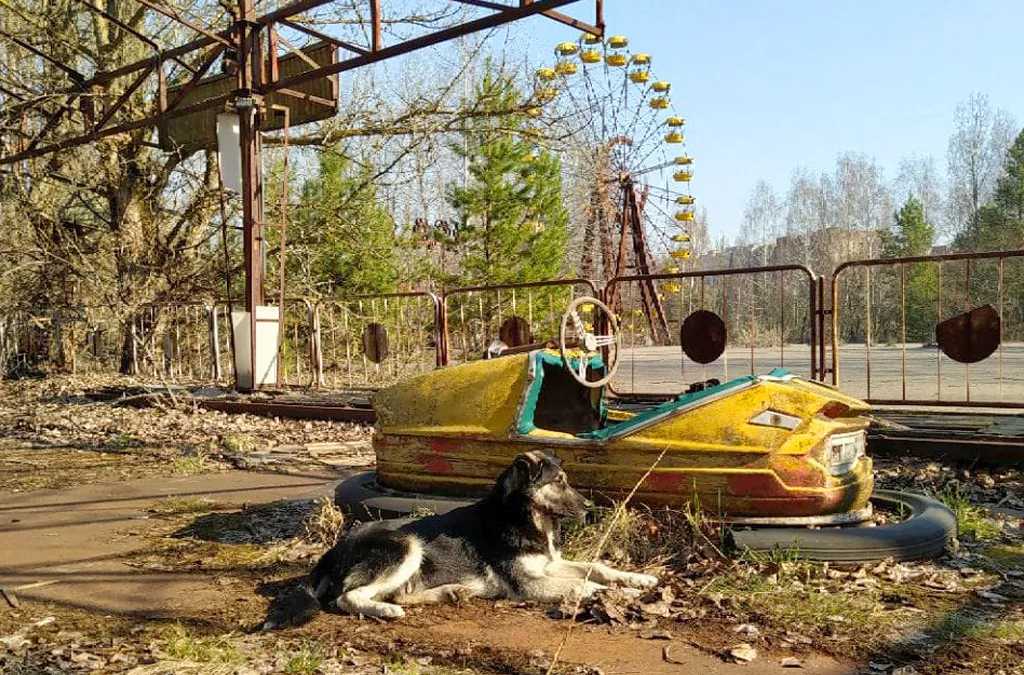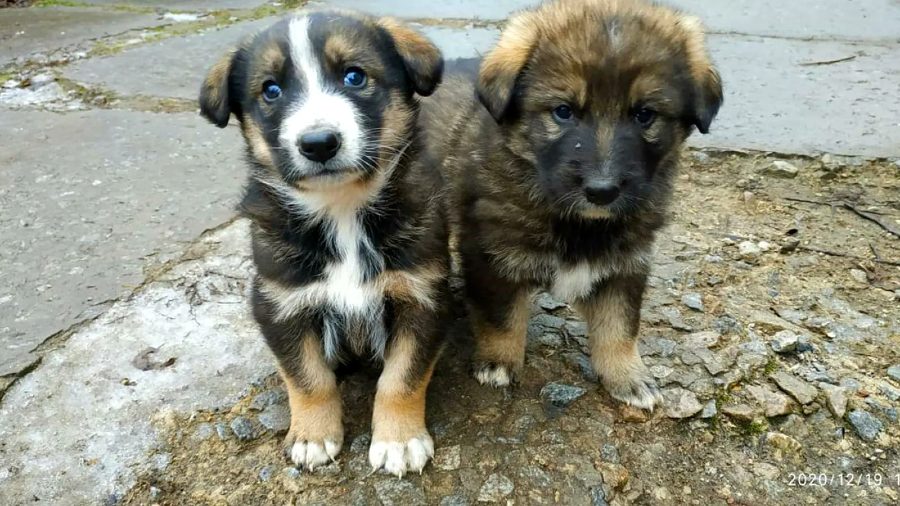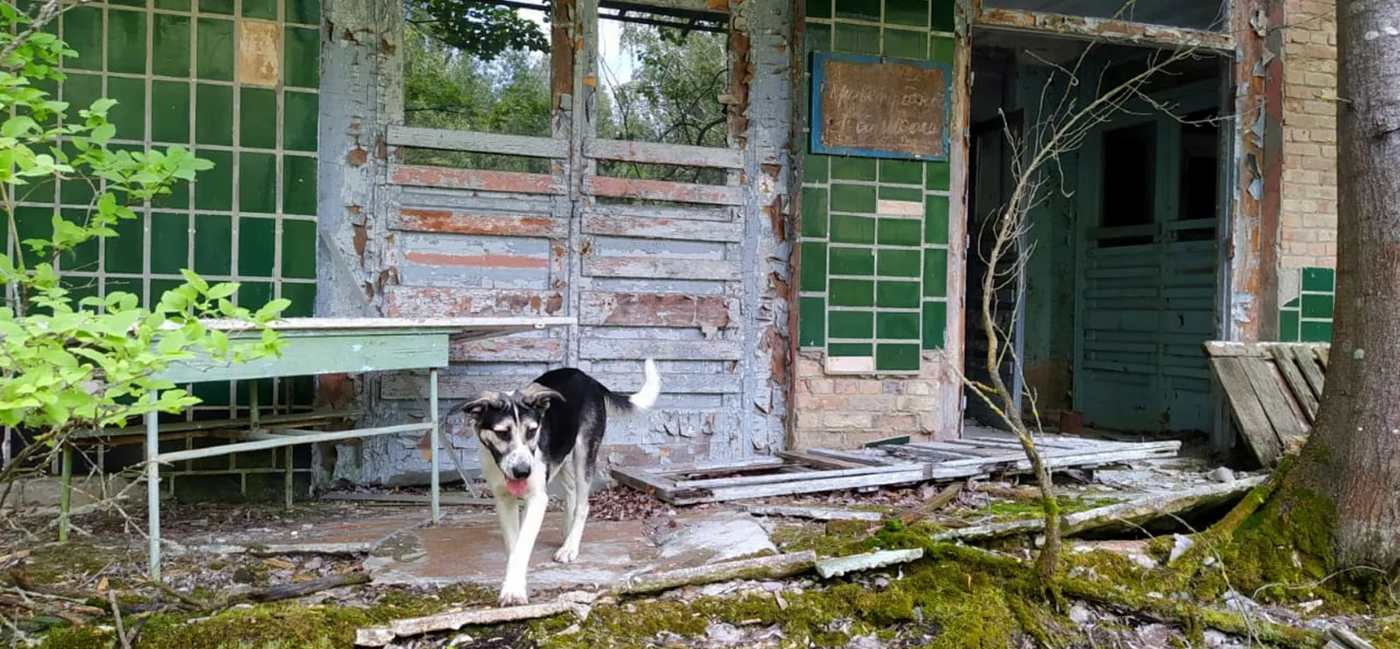
In the Chernobyl Exclusion Zone, guards watching for human trespassers are befriending and even caring for the descendants of dogs abandoned when tens of thousands of people had to abandon their entire lives and flee when reactor 4 exploded in 1986.
Their interactions, collected and documented through work from the BBC, tell a story of a spark of humanity returning to a place long void of it.
When reactor 4 went 34 years ago, the residents of Pripyat were told to leave everything behind including their pets. Jonathon Turnbull, a Ph.D. candidate at the University of Cambridge, lives in Kyiv and has visited the 1,000 square mile Exclusion Zone many times.
There he met a variety of guards very unique in the world, those charged with ensuring no one sneaks into a contaminated wasteland. These guards, he learned, had formed complex relationships with the semi-wild dogs that inhabited the Exclusion Zone.
Their stories of feeding, naming, caring for, or altogether avoiding various dogs based on temperament and personality fascinated Turnbull. For his research in geography, he asked if the guards would be wiling to carry disposable cameras and photograph the dogs in their day-to-day lives.
A snapshot of history(ies)

“If I wanted to know the dogs,” Turnbull told BBC Future, “I needed to go to the people who know them best—and that was the guards.”
Their photographs are intriguing, as they capture so many interesting sides to the lives of millions of ownerless canines around the world. Not quite wild, not quite domesticated, they roam cities and settlements looking for food. Here in the Exclusion Zone however, the personalities of the dogs are similar, but the environment is totally different.
While having total freedom, even in roaming within and without the Exclusion Zone, their lives are difficult. Beset as they are by radiation, there are also hungry wolf packs, bears, wildfires, and manmade hazards left behind.
The guards give them names, sometimes. Some dogs linger too far from patrol routes and guard posts to reveal themselves. There’s Arka, who should not be pet, sausage, who warms herself by napping one heating ducts, Tarzan, who allegedly does tricks for food, and Alpha, which the guards explain is named after a kind of radiation.
MORE: Three Decades After Nuclear Disaster, Historic New Solar Farm is Launched in Chernobyl
Their relationships with the guards, who give them food, remove ticks, and will even administer rabies vaccines, are as varied as they are. In some cases they just want food, but the more talkative guards, who officially aren’t allowed to interact with the dogs for fear of contamination, explain they act as assistants in a way that’s reminiscent to early man’s domestication of wolves.

Barking in different tones to different things can warn guards of potential objects of interest, whether it be a wild animal, a human trespasser, or a tour vehicle.
“They give us joy,” said one of the guards. “For me personally, this is a kind of symbol of the continuation of life in this radioactive, post-apocalyptic world.”
GNN has reported on the men who live in the Fukushima Exclusion Zone in Japan in order to look after animals. There, like in Pripyat, thousands of animals were left behind.
While one of is the single-most irradiated man in Japan, scientists have told him that the radioactive mutations that would end his life won’t arrive for another 30-40 years, at which point he would be in his mid-’80s.
Caring for the animals gives him immense joy, and he can make a living from donations and from former pet owners sending him contributions over the internet.
These Heroes Deserve Recognition—Share Their Story on Social Media…




















